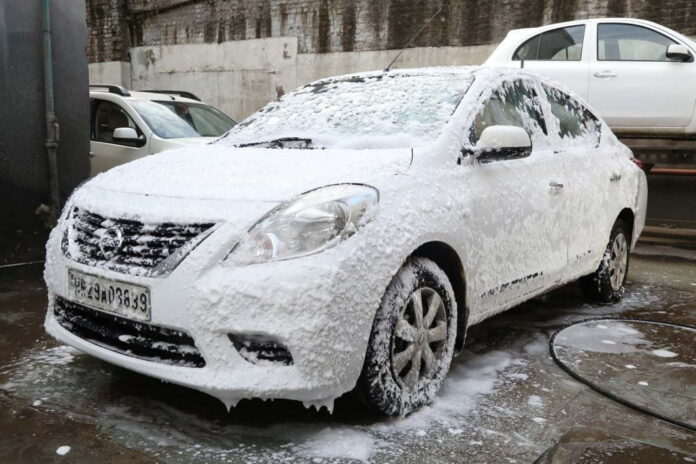Nissan, Hyundai, Maruti Go Waterless and save millions of water which they pledge to donate to drought affected areas
Nissan in India has conserved 6.1 million litres of water over the past three years by using an innovative car wash technique. The substantial water savings were achieved thanks to Nissan’s advanced Foam Wash technique to clean cars at its service centres across India, and underlines the company’s commitment to deliver sustainable mobility to customers and society. Meanwhile, Hyundai and Maruti also claim they has saved over 200 million litre of waters as well. This unique process is using dry wash foam which is being supplied to service centers.
Car washes at service centres are a major part of after sales and servicing of customers’ vehicles which need a large amount of water. Traditional car washes generally need around 160 litres of water to clean one car. The Foam Wash technique, introduced in 2014 at Nissan service centres such as, uses only 90 litres of water per car which reduces water consumption by 45% with an immediate effect. The amount of water saved by the company is equal to the water consumption of around 25,000 households in India for one day says Nissan.
Using the foam wash technique for car wash saves time and a significant amount of water along with money too. This process require less than half the water being used and the use of micro fiber cloth and other foam to spread the soap/water dry foam mixture around the car which is then let to settle down for 20 minutes. Cleaning it with a simple cloth makes the car shine clean without rinsing with a lot of water than what the usual process it.
That’s a winning combination for both customers and manufacturer. The water saved will be used and donated to drought affected areas and will help continue to help people around the nation. Clean water is still a missing aspect in some parts of the nation. All these three manufacturer and we are sure others are already following or set to follow the same which will end up help the nation save water as industrial consumption in every area is the highest.



